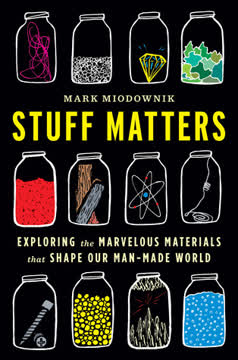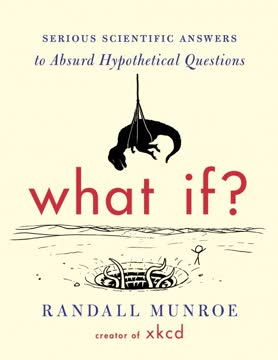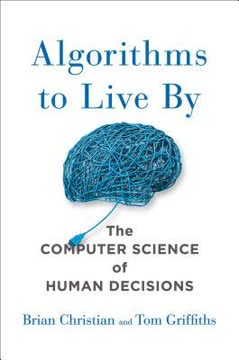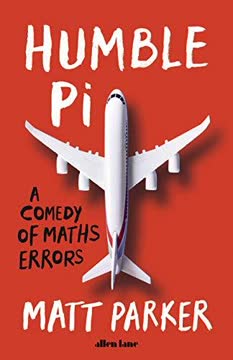Key Takeaways
1. Logic puzzles sharpen deductive reasoning and problem-solving skills
Logic. It's a logical place to start: logical deduction is the ground rule of all mathematical puzzles.
Logical foundations. Logic puzzles form the bedrock of mathematical problem-solving. They train the mind to analyze information systematically, make valid inferences, and reach sound conclusions. Classic examples include:
- River-crossing puzzles (e.g., wolf, goat, and cabbage)
- Truth-teller and liar puzzles
- Grid-based deduction puzzles (e.g., Einstein's Riddle)
Real-world applications. The skills honed through logic puzzles extend far beyond recreational mathematics. They are crucial in:
- Computer programming and algorithm design
- Legal reasoning and argumentation
- Scientific hypothesis testing
- Strategic planning in business and politics
2. Geometric puzzles reveal surprising properties of shapes and spaces
Elements is ostensibly about geometry, that is, the behaviour of points, lines, surfaces and solids. Yet its real significance for the history of human thought was the method Euclid introduced to investigate these concepts.
Euclidean foundations. Geometry puzzles build on the axiomatic system established by Euclid, exploring the properties of shapes and spatial relationships. Key concepts include:
- Constructing shapes with minimal tools (e.g., ruler and compass only)
- Exploring symmetry and transformation
- Investigating area, volume, and other spatial properties
Counter-intuitive results. Many geometric puzzles lead to surprising conclusions that challenge our intuitive understanding of space:
- The "Rope Around the Earth" puzzle, showing how a small increase in circumference can create significant elevation
- Puzzles involving rolling circles and wheels, revealing unexpected motion properties
- Tangram-style puzzles that demonstrate how shapes can be rearranged in non-obvious ways
3. Number puzzles uncover fascinating patterns and relationships
Numbers can describe quantities. One paragraph. Six words. Three sentences. But when numbers are in a list they can also express an order.
Numerical relationships. Number puzzles reveal the intricate web of relationships between integers, fractions, and other numerical constructs. They often involve:
- Prime numbers and factorization
- Divisibility rules and number theory concepts
- Sequences and series
Pattern recognition. Many number puzzles train the mind to recognize and extrapolate patterns:
- Magic squares and similar arrangements
- Number sequences with hidden rules
- Puzzles involving digital roots or other numerical transformations
4. Practical puzzles apply mathematical thinking to real-world scenarios
Mathematics Most Fowl
Real-world applications. Practical puzzles bridge the gap between abstract mathematics and everyday problem-solving. They often involve:
- Optimization problems (e.g., the "100 fowls" puzzle)
- Probability and statistics in real-world contexts
- Measurement and unit conversion challenges
Historical context. Many practical puzzles have rich historical backgrounds:
- Ancient trading and commerce problems
- Puzzles arising from navigation and timekeeping challenges
- Problems inspired by gambling and games of chance
5. Prop-based puzzles provide hands-on engagement with mathematical concepts
Puzzles that involve playing around with actual objects can be the most engrossing of all mathematical recreations.
Tactile learning. Prop-based puzzles offer a hands-on approach to mathematical concepts, making them more accessible and engaging. Common props include:
- Coins for exploring probability and combinatorics
- Matchsticks for geometry and pattern recognition
- String and paper for topology puzzles
Spatial reasoning. Many prop-based puzzles develop spatial reasoning skills:
- Tangrams and other dissection puzzles
- Three-dimensional assembly puzzles
- Knot theory puzzles using string or rope
6. Puzzle history reflects the evolution of mathematical thought
Propositiones is a remarkable document. It is the largest cache of puzzles from medieval times, as well as the first Latin text that contains original mathematical material.
Historical progression. The history of mathematical puzzles mirrors the development of mathematical thinking:
- Ancient civilizations: Basic counting and measurement puzzles
- Medieval period: Increasing sophistication in algebra and geometry puzzles
- Renaissance and Enlightenment: Puzzles reflecting advances in calculus and probability theory
- Modern era: Puzzles incorporating computer science and advanced mathematical concepts
Cultural exchange. Puzzles have often served as a medium for mathematical ideas to spread across cultures:
- The journey of the "Hundred Fowls" problem from China to Europe
- The global spread of magic squares and similar number arrangements
- The international popularity of Japanese logic puzzles like Sudoku
7. Puzzles foster creative thinking and lateral problem-solving approaches
The key here is to let your logical brain overrule your gut instinct.
Breaking mental blocks. Many puzzles are designed to challenge conventional thinking and encourage creative problem-solving:
- Puzzles with misleading or irrelevant information
- Problems that require "thinking outside the box"
- Puzzles with multiple solutions or unexpected twists
Lateral thinking. Puzzle-solving often requires approaching problems from unconventional angles:
- Reframing the problem in a different context
- Using visualization or analogies to gain new insights
- Combining disparate pieces of information in novel ways
8. Mathematical puzzles have applications beyond pure recreation
Puzzles are captivating because they appeal to the human impulse to make sense of the world; they give us pleasure because we are making sense out of something.
Educational value. Puzzles serve as powerful teaching tools in mathematics education:
- Introducing complex concepts in an engaging format
- Providing practice in problem-solving strategies
- Demonstrating the interconnectedness of different mathematical fields
Professional applications. Many fields use puzzle-like problems in their work:
- Computer science: Algorithm design and optimization
- Finance: Risk assessment and market prediction
- Engineering: Troubleshooting and system design
- Psychology: Cognitive testing and brain training
Last updated:
FAQ
What is "Can You Solve My Problems?" by Alex Bellos about?
- Curated puzzle collection: The book is a curated anthology of 125 mathematical and logical puzzles spanning the last two millennia, selected by Alex Bellos for their ingenuity, entertainment, and thought-provoking qualities.
- Wide-ranging puzzle types: It covers a broad spectrum of puzzle types, including logic, geometry, practical problems, prop-based puzzles, and number games, each with historical context and stories about their origins.
- Accessible to all: The puzzles require logical thinking and creativity but do not demand advanced mathematical knowledge, making the book accessible to a general audience.
- Celebration of puzzle culture: Bellos explores the cultural, historical, and intellectual significance of puzzles, showing how they reflect mathematical discovery and human curiosity.
Why should I read "Can You Solve My Problems?" by Alex Bellos?
- Sharpen your mind: The book offers a fun and challenging way to exercise logical reasoning, problem-solving, and creative thinking skills.
- Learn puzzle history: Readers gain insight into the evolution of puzzles, their role in mathematics, and their cultural significance across different eras and societies.
- Enjoy diverse challenges: With puzzles ranging from ancient riddles to modern brainteasers, there’s something for every level and interest.
- Experience joy of discovery: Bellos emphasizes the pleasure and satisfaction that comes from solving puzzles, making the book both entertaining and intellectually rewarding.
What are the key takeaways from "Can You Solve My Problems?" by Alex Bellos?
- Puzzles as universal language: Puzzles transcend time and culture, offering a playful yet profound way to engage with mathematics and logic.
- Problem-solving strategies: The book demonstrates that many puzzles are difficult not because of their complexity, but because of the approach—sometimes a change in perspective is all that’s needed.
- Historical context matters: Understanding the origins and evolution of puzzles enriches the solving experience and highlights the creativity of past mathematicians and puzzle-makers.
- Fun and learning combined: The act of puzzling is both enjoyable and educational, expanding one’s toolkit for tackling real-life challenges.
How is "Can You Solve My Problems?" by Alex Bellos structured?
- Thematic chapters: The book is divided into chapters by puzzle type—Logic Problems, Geometry Problems, Practical Problems, Problems with Props, and Problems for Purists.
- Chronological order: Within each chapter, puzzles are presented roughly in chronological order, showing the development of puzzle styles and themes over time.
- Difficulty varies: Puzzles are not ordered by difficulty, as what is hard for one person may be easy for another; some are marked as especially tough.
- Quick-fire teasers: Each chapter begins with ten short, themed questions (often from UK Mathematics Trust competitions) to warm up the reader.
What kinds of puzzles are included in "Can You Solve My Problems?" by Alex Bellos?
- Classic logic puzzles: River crossings, truth-tellers and liars, kinship riddles, and deduction-based mysteries.
- Geometric challenges: Problems involving shapes, areas, and spatial reasoning, often inspired by historical texts and Japanese sangaku.
- Practical and real-world puzzles: Scenarios involving coins, weights, jugs, and everyday objects, often requiring clever reasoning or algebraic thinking.
- Prop-based and hands-on puzzles: Tasks using coins, matches, stamps, and string, encouraging physical manipulation and experimentation.
- Number games and purist puzzles: Problems focused on arithmetic, number patterns, and mathematical properties, including the famous "four fours" challenge.
What is Alex Bellos’s approach to teaching problem-solving in "Can You Solve My Problems?"?
- Emphasis on reasoning: Bellos encourages step-by-step logical deduction, often walking the reader through the reasoning process for selected puzzles.
- Highlighting misdirection: He shows how many puzzles are designed to lead solvers down the wrong path, teaching the importance of questioning assumptions.
- Encouraging playfulness: The book celebrates intellectual play, curiosity, and the joy of discovery, rather than rote calculation or memorization.
- Learning from failure: Bellos suggests that even when a puzzle is not solved, the solution can be as enlightening as the process, often revealing new techniques or ideas.
What are some of the most famous or historically significant puzzles featured in "Can You Solve My Problems?" by Alex Bellos?
- Wolf, Goat, and Cabbages: An ancient river-crossing puzzle from Alcuin’s "Problems to Sharpen the Young."
- The Zebra Puzzle (Einstein’s Riddle): A complex logic grid puzzle about houses, nationalities, and pets.
- Cheryl’s Birthday: A viral logic puzzle from a Singaporean math competition, famous for its shared-knowledge reasoning.
- The Four Fours: A classic number puzzle challenging solvers to express numbers using exactly four 4s and mathematical operations.
- The 7-Eleven Problem: A modern algebraic puzzle involving prices and products, illustrating the power of prime factorization.
How does "Can You Solve My Problems?" by Alex Bellos connect puzzles to mathematical history and culture?
- Historical anecdotes: Each puzzle is accompanied by stories about its origin, evolution, and the mathematicians or cultures that popularized it.
- Cultural adaptations: Bellos shows how classic puzzles have been adapted across regions and eras, reflecting local customs and concerns.
- Mathematics as recreation: The book highlights how, historically, mathematics was often pursued for amusement and intellectual diversion, not just practical calculation.
- Influence on mathematics: Some puzzles have inspired significant mathematical discoveries or have been used to teach important concepts.
What advice does Alex Bellos give for solving puzzles in "Can You Solve My Problems?"?
- Don’t assume the obvious: Many puzzles are designed to mislead; always question your initial assumptions and look for alternative interpretations.
- Use logical elimination: Systematically ruling out possibilities is often key, especially in grid-based or deduction puzzles.
- Draw diagrams and grids: Visual aids can clarify relationships and help organize information, especially for complex logic or spatial puzzles.
- Enjoy the process: Bellos encourages solvers to embrace the challenge, learn from mistakes, and find satisfaction in both the struggle and the solution.
What are some of the best quotes from "Can You Solve My Problems?" by Alex Bellos and what do they mean?
- "The best puzzles are pieces of poetry." — Bellos emphasizes the elegance, brevity, and beauty of well-crafted puzzles, likening them to art.
- "Often a problem is difficult not because it is a ‘difficult problem’ but because we are going about it the wrong way." — This highlights the importance of perspective and approach in problem-solving.
- "Puzzles are captivating because they appeal to the human impulse to make sense of the world; they give us pleasure because we are making sense out of something." — Bellos connects the joy of puzzling to a fundamental human drive for understanding.
- "Most importantly, however, puzzles indulge our intellectual playfulness. They are fun. They reflect a childlike sense of curiosity." — The book celebrates the playful, joyful side of mathematics and logic.
How does "Can You Solve My Problems?" by Alex Bellos help readers improve their problem-solving skills?
- Exposure to variety: By presenting a wide range of puzzle types, the book broadens the reader’s repertoire of strategies and approaches.
- Step-by-step solutions: For selected puzzles, Bellos provides detailed reasoning, modeling effective problem-solving techniques.
- Encouragement of persistence: The book normalizes struggle and failure as part of the learning process, encouraging readers to keep trying.
- Transferable skills: The logical, creative, and analytical skills developed through puzzling are applicable to real-world challenges and other areas of life.
What makes "Can You Solve My Problems?" by Alex Bellos unique among puzzle books?
- Curatorial expertise: Bellos’s selection is informed by deep research, correspondence with puzzle experts, and a passion for mathematical history.
- Storytelling approach: Each puzzle is contextualized with engaging stories, making the book as much about the culture of puzzling as the puzzles themselves.
- Balance of challenge and accessibility: The book is designed to be approachable for non-mathematicians while still offering depth and challenge for experienced solvers.
- Celebration of play: Bellos’s infectious enthusiasm for puzzles and intellectual playfulness sets the tone, making the book both educational and delightful.
Review Summary
Can you solve my problems? is a well-received puzzle book, praised for its diverse collection of brainteasers and engaging historical context. Readers appreciate the range of difficulty levels, detailed explanations, and the author's passion for puzzles. Many find it suitable for all ages and a great way to stimulate critical thinking. Some reviewers note it's best enjoyed in print format and as an occasional diversion rather than read straight through. A few found certain puzzles too simple or complex, but overall, the book is highly recommended for puzzle enthusiasts.
Similar Books









Download PDF
Download EPUB
.epub digital book format is ideal for reading ebooks on phones, tablets, and e-readers.






